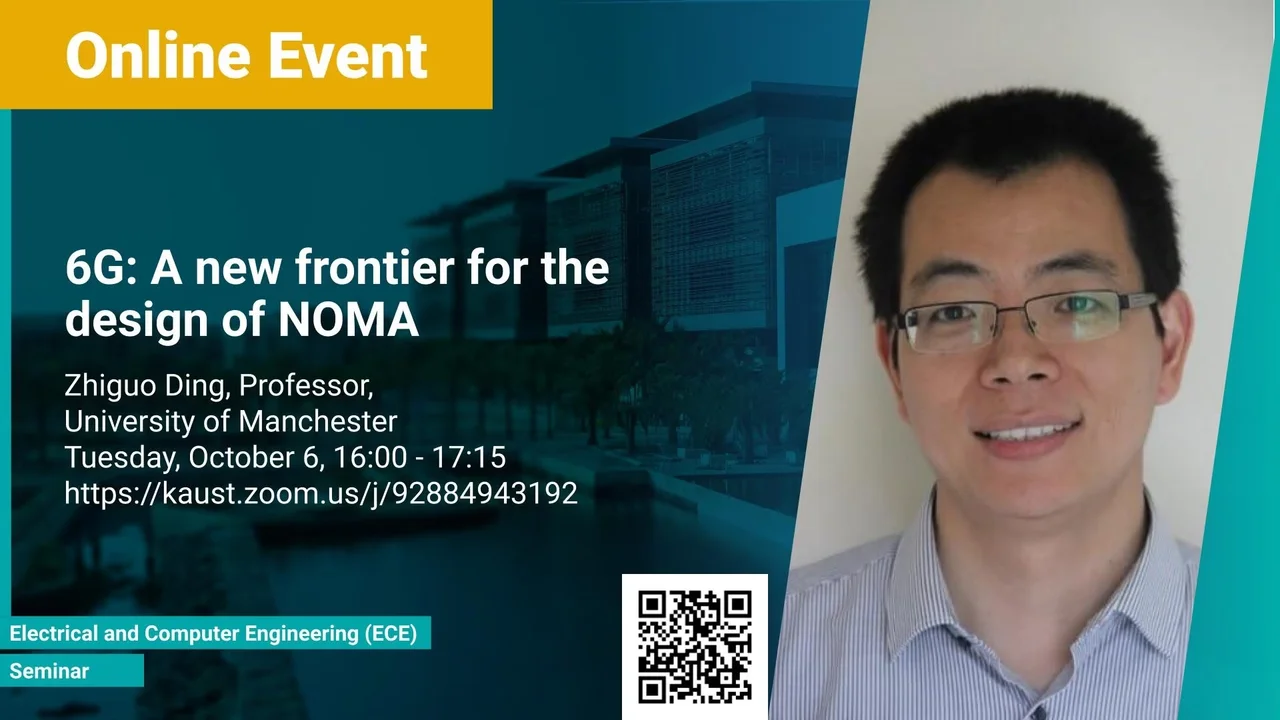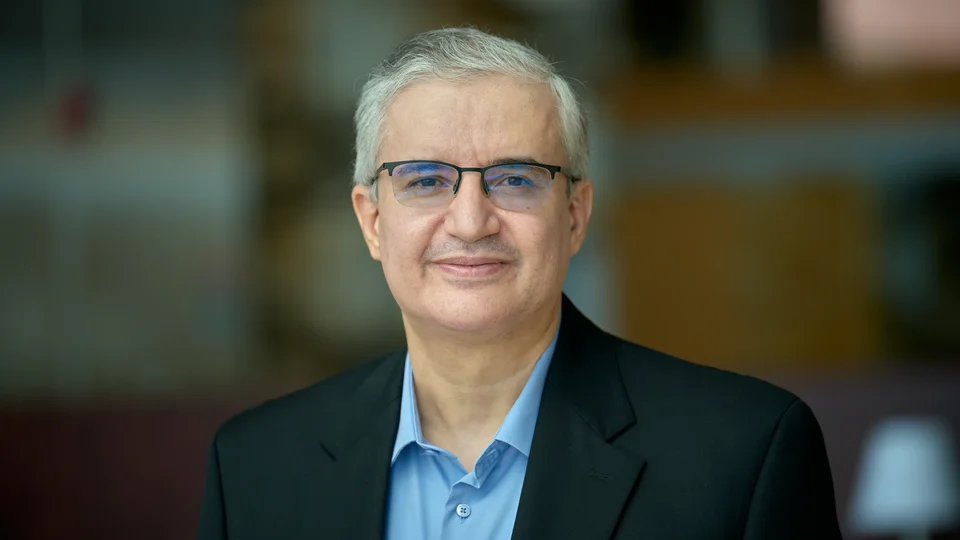
6G: A new frontier for the design of NOMA
- Prof. Zhiguo Ding, University of Manchester
KAUST
The aim of this talk is to provide an overview of the latest research results and innovations in NOMA technologies as well as their emerging applications. Future research challenges regarding NOMA in B5G and 6G are also presented.
Overview
Abstract
With the current rollout of 5G, the focus of the research community is shifting towards the design of the next generation of mobile systems, e.g., 6G mobile networks. Non-orthogonal multiple access (NOMA) has been recognized as an essential enabling technology for the forthcoming 6G networks to meet the heterogeneous demands on low latency, high reliability, massive connectivity, improved fairness, and high throughput. The principle of NOMA is to encourage users for spectrum sharing, where multiple users are served in the same resource block, such as a time slot, subcarrier, or spreading code. The aim of this talk is to provide an overview of the latest research results and innovations in NOMA technologies as well as their emerging applications. Future research challenges regarding NOMA in B5G and 6G are also presented.
Brief Biography
Zhiguo Ding received his B.Eng in Electrical Engineering from the Beijing University of Posts and Telecommunications in 2000, and the Ph.D degree in Electrical Engineering from Imperial College London in 2005. From Jul. 2005 to Apr. 2018, he was working in Queen's University Belfast, Imperial College, Newcastle University and Lancaster University. Since Apr. 2018, he has been with the University of Manchester as a Professor in Communications. From Oct. 2012 to Sept. 2021, he has also been an academic visitor in Princeton University.
Dr Ding' research interests are B5G networks, machine learning, cooperative and energy harvesting networks and statistical signal processing. He is serving as an Area Editor for the IEEE Open Journal of the Communications Society, an Editor for it IEEE Transactions on Vehicular Technology, and IEEE Open Journal of the Signal Processing Society, and was an Editor for IEEE Transactions on Communications, IEEE Wireless Communication Letters, and IEEE Communication Letters. He received the best paper award in IET ICWMC-2009 and IEEE WCSP-2014, the EU Marie Curie Fellowship 2012-2014, the Top IEEE TVT Editor 2017, IEEE Heinrich Hertz Award 2018, IEEE Jack Neubauer Memorial Award 2018, IEEE Best Signal Processing Letter Award 2018 ,and Web of Science Highly Cited Researcher 2019. He is a Fellow of the IEEE.
